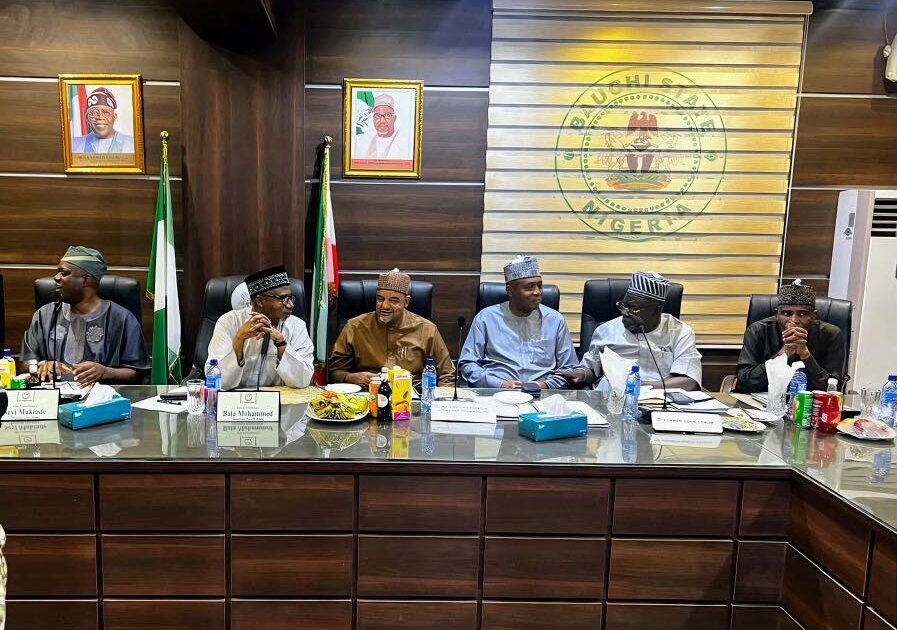The Peoples Democratic Party (PDP) finds itself embroiled in a deepening internal crisis, primarily centered around the position of National Secretary. Despite attempts at reconciliation, including the formation of a committee led by former Senate President Bukola Saraki, the conflict continues to escalate, threatening the party’s unity and future prospects. The controversy stems from conflicting claims to the secretaryship, with Senator Samuel Anyanwu reinstated by the Supreme Court after a legal battle, while the party’s South-East caucus and several governors champion Sunday Udeh-Okoye for the role. This power struggle has created factions within the party, with accusations of undermining authority and disregard for due process being leveled against the Saraki-led reconciliation committee. The situation is further complicated by the upcoming National Executive Committee (NEC) meeting and elective convention, raising concerns about the party’s ability to present a united front.
The crux of the conflict lies in the interpretation and implementation of the Supreme Court’s ruling on Anyanwu’s reinstatement. While the court affirmed his position, the party’s South-East caucus and several key governors argue that their preferred candidate, Udeh-Okoye, should be recognized. This disagreement highlights the existing tensions between different power blocs within the PDP, with some accusing the Saraki committee of acting unilaterally and failing to consult all stakeholders. The controversy has reignited old wounds from the 2023 elections and exacerbated existing divisions, threatening to further destabilize the party. The lack of consensus on the National Secretary position has created a sense of distrust and apprehension among party members, casting a shadow over the upcoming NEC meeting and elective convention.
The Saraki-led committee’s decision to endorse Anyanwu’s return as National Secretary, without comprehensive consultation with all stakeholders, has fueled the discontent within the PDP. Several governors, including those from Enugu, Zamfara, Oyo, and Bayelsa states, have expressed their displeasure, viewing the committee’s actions as a deliberate attempt to marginalize their influence. This perceived disregard for their authority has deepened the divide within the party, making it increasingly difficult to achieve a lasting resolution. The South-East caucus, which had initially nominated Udeh-Okoye, feels particularly aggrieved, warning of potential repercussions if their choice is not respected. The resulting tension threatens to derail the ongoing reconciliation efforts and further fragment the party.
Adding to the complexity of the situation is the nomination and subsequent approval of Setonji Koshoedo, the Deputy Scribe, as Acting Secretary. While this move was intended as a temporary solution pending the resolution of the dispute, it has inadvertently created another layer of contention. With Anyanwu’s reinstatement by the Supreme Court and the Saraki committee’s endorsement, Koshoedo’s position becomes uncertain, adding to the confusion and uncertainty within the party’s ranks. This overlapping of claims and appointments further complicates the path towards reconciliation, requiring a delicate balancing act to address the competing interests and maintain party unity. The situation underscores the urgent need for a clear and decisive resolution to prevent further escalation of the crisis.
Despite the internal strife, PDP’s 2023 presidential candidate, Atiku Abubakar, has voiced his support for the ongoing reconciliation efforts, emphasizing the importance of a united opposition front. Recognizing the crucial role of the PDP and other opposition parties in the nation’s political landscape, Atiku stresses the need for a strong and cohesive coalition to challenge the ruling party. He views the internal conflicts within the PDP as a temporary setback and remains optimistic about the party’s ability to overcome its challenges. Atiku’s unwavering support for reconciliation signals his commitment to preserving the party’s integrity and maintaining a viable opposition force. He believes that a united opposition is vital for the country’s future and is determined to play a constructive role in achieving that goal.
While the PDP grapples with its internal woes, the ruling All Progressives Congress (APC) has dismissed the opposition party as politically irrelevant. The APC sees the PDP’s current crisis as a symptom of its decline and believes that no amount of reconciliation can revive its fortunes. They characterize the PDP as a party whose time has passed and whose ideas are no longer relevant to the electorate. This dismissive stance reflects the APC’s confidence in its own position and its perception of the PDP as a weakened opponent. However, the ongoing internal struggles within the PDP undoubtedly present a significant challenge to the party’s future, and its ability to effectively challenge the ruling party remains to be seen. The PDP’s internal crisis presents a complex and multifaceted challenge, threatening its unity, stability, and future prospects. The conflicting claims to the National Secretary position, coupled with accusations of procedural irregularities and disregard for key stakeholders, have created deep divisions within the party. While Atiku Abubakar’s support for reconciliation offers a glimmer of hope, the path towards resolution remains fraught with challenges. The APC’s dismissive stance further underscores the precarious position of the PDP, highlighting the urgent need for decisive action to address its internal conflicts and reclaim its political relevance.


